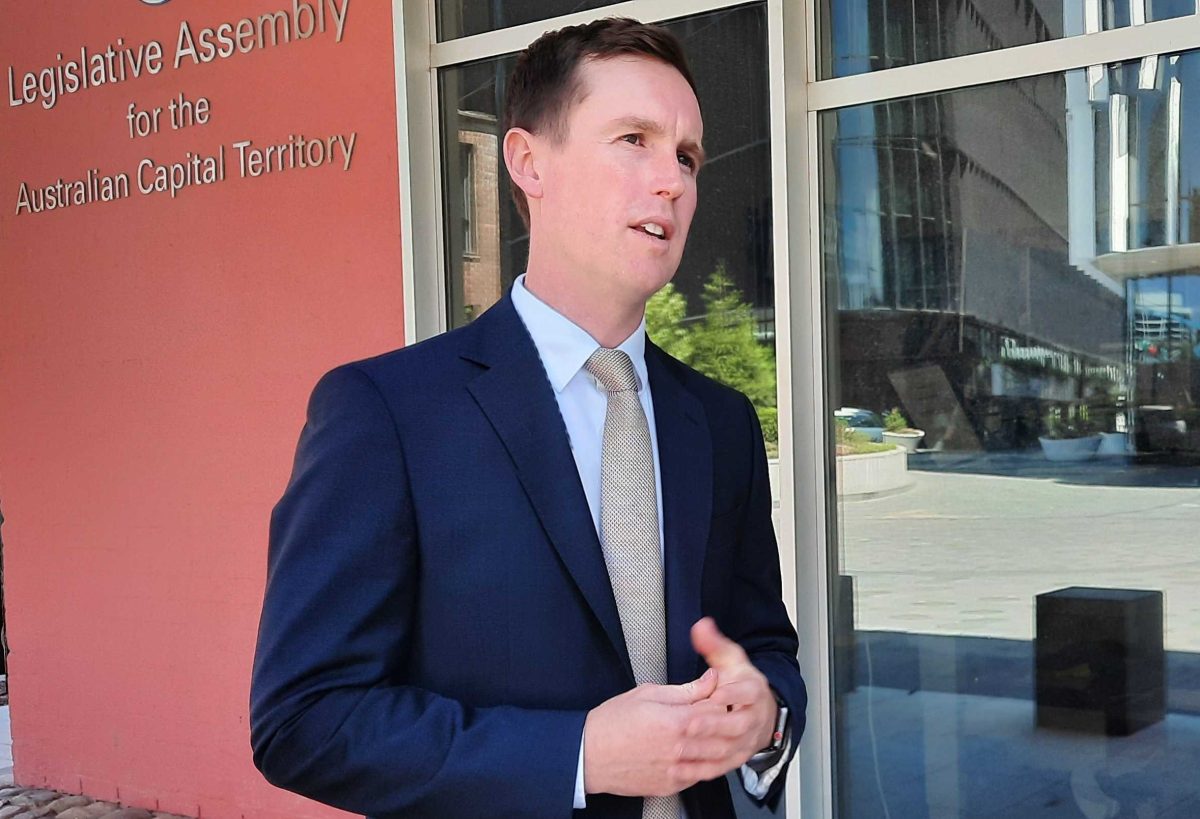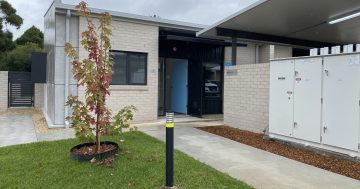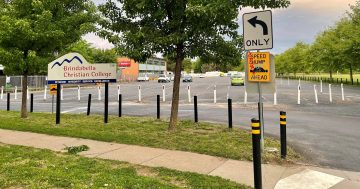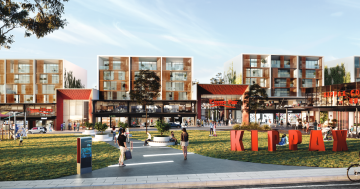
Planning Minister Chris Steel says the government may consider adding community housing after the new Bill is passed. Photo: Ian Bushnell.
Planning Minister Chris Steel has brushed off calls for his proposed appeal exemption for public housing to be extended to all housing in a bid to speed up approval times and accelerate the number of new homes being built in the ACT.
The property industry welcomed new legislation scrapping third-party appeals to the ACT Civil and Administrative Tribunal over public housing and health project proposals by making them Territory Priority Projects.
However, the ACT Property Council and the Housing Industry Association said the minister did not go far enough.
ACT Property Council executive director Ashlee Berry said the ACT must strike a balance between community input and certainty for investors, warning that NIMBY-driven appeals continue to stall essential housing projects.
“To truly unlock housing supply and investment confidence, these reforms should apply to all developments, not just public housing,” she said.
The Property Council ACT says Mr Steel should make the timeframe for decisions around appeal requirements certain and shorter, introduce fixed timeframes for hearing decisions and consider limiting third-party appeal rights, and allow Lease Variation Charge determinations to be decided by the President of the Australian Property Institute, or another independent third party.
HIA Executive Director ACT & Southern NSW Greg Weller said the ACT had just recorded the worst building approval numbers for detached homes in 55 years: only 680 dwellings were approved in 2024, and 1500 multi-residential dwellings were approved – the lowest number since 2009.
“If it is the case that public housing developments are being unfairly held up, then comparable private housing developments should be treated the same way,” he said.
However, Mr Steel said there is already an exempt pathway under the Planning Act for building single-family homes that don’t require a development application.
“There’s also a bar on third-party appeals for housing that’s built in town centres, but where we’re seeing a particular problem is in areas where there are public housing projects being proposed, and those are being appealed on a disproportionate basis to ACAT,” he said.
Mr Steel said community housing developments were not included in the Bill, but he was open to discussing the idea after it passed.
“At this stage, we haven’t included in the bill community and broader social housing that is not owned or proposed by the housing commissioner and Housing ACT,” he said.
“There are some complex considerations that would need to be given around the structure of those community and social housing proposals, so it’s something that we’re prepared to talk about with that sector and with the broader community, but we’d like to see this bill passed through the Assembly first before we do that.”
Most of the appealed public housing proposals have been in the inner north and south, and he was asked if he had a message for those communities.
Mr Steel sidestepped that but said these new homes were the result of the government decision to “break down some of the older concentrations of disadvantage in Canberra” such as the Currong flats.
“We wanted to make sure that we replaced some of that public housing in the north, in the south where that housing was provided before, but in a salt and pepper approach in those suburbs, as well as some of the other outer suburbs,” he said.
YWCA Canberra, which had a women’s housing project in Ainslie delayed by two costly years of action in ACAT, welcomed the Bill.
YWCA Canberra CEO Frances Crimmins said that without an eventual Ministerial call-in for the small development, those women would still be waiting for housing.
“This is a hugely significant announcement that will provide certainty to community housing developers and those in need of housing,” she said.
YWCA Canberra submitted during the planning system review that the administrative review process was being gamed by a small minority looking to scuttle suitable housing proposals that have otherwise met the conditions for approval.





















